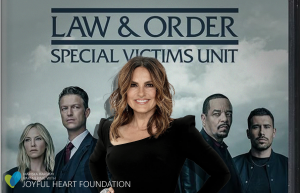“Mo to the E to the … ,” the most iconic theme song, the one you’ll never skip, has made its way to Netflix. Netflix released the TV series “Moesha” Aug. 1 and announced that they will be adding more classic ’90s-2000s sitcoms with strong black leads.
Bringing the ’90s to 2020 gives the new generation a splash of the past. Moesha gives us ’90s poetry through her iconic diary entries, music, fashion, parties and hairstyles; something I’m more than a little nostalgic for.
So, how does the character Moesha relate to the issues facing Gen Z?
Turns out, our generations aren’t that different after all.
Throughout her teenage years, Moesha struggles with her love life and dates different guys. This is especially shown in her rollercoaster relationship with Quinton, who is also known as Q (the “bad boy” of the ’90s).
Also, while trying to maintain a dating life, she has to get approval by her overprotective father who is hard on her when it comes to school and her social life.
However, the show doesn’t always involve typical love life drama; it raises important issues that are currently still relevant in today’s society.
There is a lot of body shaming on the show. During the Halloween episode in Season 3, Moesha and Niecy left a voicemail on their friend Kim’s answering machine making jokes about whether there were costumes big enough for her to be Diana Ross.
Another issue covered in the show is racial discrimination in school. This happened in the episode where Antonio paints a mural for their cafeteria of Cesar Chavez. This mural upsets the Black community in the school because the mural was painted during Black History Month, and they felt that there should have been an African American leader in the mural, causing the Black and Latinx community to divide and argue over racial tensions.
Then, there was the fear of expressing one’s sexuality. An example of this was during an episode when Hakeem’s cousin, Omar, comes to town and goes on a date with Moesha. Later, she finds out that he likes men and tells her friends, causing rumors to fly around the school that Omar is gay. He denies it because he doesn’t want Hakeem to look at him in a different way.
Another issue that is brought into the light is living in single-parent homes. Hakeem is raised by a single mother who works three jobs to take care of him, leading Hakeem to get a job in school to help around the house with bills. He also spends the majority of his time at Moesha’s house, especially for breakfast and dinner.
Throughout all the social issues that this show raises, it gives us unity for the Black community. Despite their issues, Moesha’s family gives her unconditional love and support. Through all Moesha’s selfish episodes, her friends are always there for her, especially her best friend, Hakeem.
Not only does this show express black love through friendships and family, but it also gave many Black celebrities a chance to shine on television. Throughout each season you’ll see icons such as Kobe Bryant, Usher, Xscape, MC Lyte, Bernie Mac, Jamie Foxx and more who have contributed to black entertainment.
Now, what are you waiting for? Grab some snacks and your remote, and tune in to this ’90s explosion.




